The empty jug.
C hecking out the various blog reviews the other day, I fastened upon this one: Kampung Boy: Not a member of the Legion of Superheroes-June 5- on the blog of one (since I've heard there's more than one) Matt Brady of Chicago Ill.: "The book is more illustrated prose than comics (at least by the Scott McCloud definition), with most pages consisting of text surrounded by pictures..." and it reminded me that I've been making some notes over the last couple of months on this odd tendency, this need to say what a thing is NOT.
 Brian Talbot in his new book Alice in Sunderland also invokes McCloud. He resolves a scene in which he is assailed by authorial doubt by having Scott appear like a prophet and deliver the reassuring line, "Comics can be about anything." It's not done without irony, but we come away taking it as a serious declaration, and unlike Lat (Kampung Boy) who is working outside of this subculture, all of Talbot's typographical decisions tell us clearly that he's making 'a comic book', from the carefully cascaded balloon-text units to the compositional relationship of figure to frame; indeed the whole pictorial space is written in comicbook syntax.
Brian Talbot in his new book Alice in Sunderland also invokes McCloud. He resolves a scene in which he is assailed by authorial doubt by having Scott appear like a prophet and deliver the reassuring line, "Comics can be about anything." It's not done without irony, but we come away taking it as a serious declaration, and unlike Lat (Kampung Boy) who is working outside of this subculture, all of Talbot's typographical decisions tell us clearly that he's making 'a comic book', from the carefully cascaded balloon-text units to the compositional relationship of figure to frame; indeed the whole pictorial space is written in comicbook syntax.
Why the need for it to 'be comics'? That's the common denominator in each of the above quotes, even though they appear to be implying opposite positions for McCloud, on one hand that he has placed limits on comics and on the other that he has freed them from limits? An unimpassioned observer might say, why should it matter? If it's 'not comics' it would be ipso facto something else. However, and this may seem strange to the same observer, to say that a thing is 'not comics' is, in the eyes of the folk we are talking about, to ban it to oblivion.
I found a clue to this conundrum recently in an exchange with Stephen Frug on his blog about his contention that a page within The Codex Seraphinianus 'is comics'. He wrote: "I think that the reason I so strongly resist your resisting of the whole idea of definitions in discussing McCloud is that... I experienced it as an attempt to stuff me -- us -- - back in a jail from which we'd escaped."
'Us'? Then let's picture a loose-knit society of fellow travellers, whose members have chosen to express themselves through a genre of art, and to follow the efforts of their confreres in this same genre of art, and furthermore, for their collective benefit, to raise its public respectability. However these ties tend to suggest something stronger than just an 'interest' (or a 'genre', half of my readers are now saying). What is it that unites its members? An allegiance? To what? Not to a political cause or a religious scripture or even a charismatic personality, but to a form. A cold hard formula. McCloud's empty jug.
Though the jug would have it otherwise, it is in the nature of such groups to foster conservatism, and the the first commandment is always the definition. It's not just in 'comics' that I continually run up against definitions. When I wrote about A Humument on 12 march, I read that it was considered to be an 'artist's book', so I figured I ought to read the literature on that just in case I inadvertently 'put my foot in it'. I googled the words and landed in a forum where folk were arguing about the definition of the term 'artist's book'. There's no profit in going back there, so let this stand in for it, from SF Weekly:
In the middle of the tug- of-war over artists' books By Karen Silver October 31, 2001
It's always fun to go to a museum exhibition and step into a pile of steaming controversy. This time the show in question -- "Artists' Books in the Modern Era 1870-2000" at the Legion of Honor -- is a lovely presentation of 180 volumes from the impressive, immense collection of Reva and David Logan, who began amassing works by everyone from Joan Miró to Pablo Picasso to Jasper Johns in the 1950s. At the exhibit's entrance is the first sign of confusion. On the introductory wall panel, the curator attempts to explain the content: "Artists' books (also called livres d'artistes or illustrated books) combine text with art, usually original prints created especially for that volume, to form a unified whole." Under this vague definition, The Stinky Cheese Man might be considered an artists' book.
When I started this blog six months ago, I thought it wise to do some research before throwing myself into the fray. To figure out what a blog is expected to be and do if nothing else:
Just what is a blog, anyway? By Michael Conniff -09-2005
Defining this variable form is not easy in the highly opinionated blogosphere - nor is it simple in the increasing number of newsrooms that are embracing blogging. To blog or not to blog is no longer the question.
The question now: What is a blog?
Capturing the blogging beast is no small matter, not when everybody from the lonely scribe in Paducah to me-too mass media in Manhattan is trying to get arms and minds around the virtual blob now encroaching online. Nor is the act of definition without consequences, as individuals and corporations make plans (and even multimillion dollar acquisitions) based upon the momentum behind something they can no more easily define than a Rorschach splotch.
This commentary piece from the Australian oddly thinks the crucial element in a blog is the comments box:
Blogs still rule, despite the dictatorship of idiotsMarch 28, 2007
Mark Day
Not everyone agrees. As a blogger identified as Jack put it this week: “All weblogs are personal, even the ones of the arrogant journalists bloggers, so called gatekeepers of information, though they treat their audience with contempt. Most journalist blogs are not even blogs, just opinion pieces with a comment section, which the so-called blogger journo peruses once a week and throws a couple of ad hoc replies every now and then to say I’m listening, which they are clearly not.”
Jack says blogs should provoke argument rather than being a convenient response mechanism for readers.
But there are traps in this because blogs are frequently hijacked by people who regularly put forward their own often twisted versions of truth on any subject - call them fixations - and skew the result into what The Sunday Times called “a dictatorship of idiots”. Most times the casual reader wouldn’t have a clue about this because in a blog format the opinions of nutters are given the same kind of space and display as the opinions of the aforementioned erudite ruminators.
The information is no longer arranged in order as in textbooks. It is not locked together; we all receive it in a different order, according to our own 'clickstreams'. There is no hierarchical structure to keep the crap, the 'stinky cheese' and 'the nutters', from contaminating the rest. Did 'we' think of that when we wanted all arts to be considered equal? Definitions are sought to control quality and meaning since there is NO FINAL AUTHORITY. We have overthrown God and the King and there is no bouncer at the door. We are in a mortal panic. Steven King's langoliers are eating the ground we're standing on and we're grasping for something that might take us through a rip in the universe to where everything makes sense.
Labels: comics crit 1
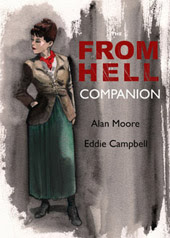
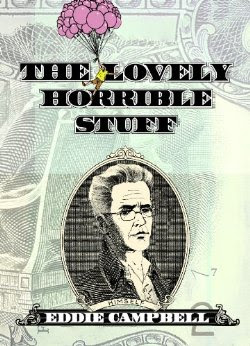

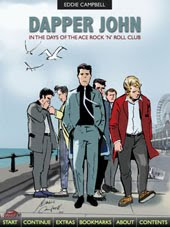
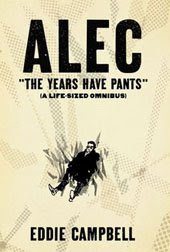
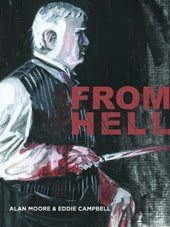
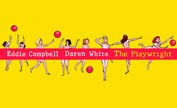
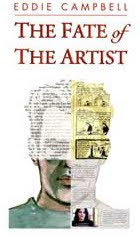
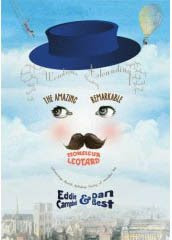
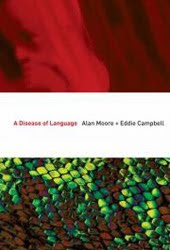
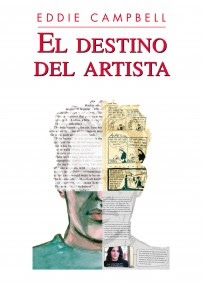
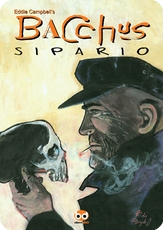
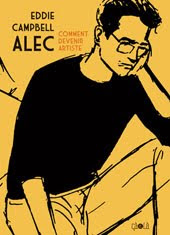

17 Comments:
nothing important, just wanted to share:
i first encountered Lat in MAT SOM, a sort of continuation of KAMPUNG BOY, this time the protagonist in his mid20s, striving to make a formal paying career out of his art/craft (which is writing), at the same time trying to impress a beautiful girl AND try to cope with the stricter traditions of his country (specifically, arranged marriages). one of the best bits in it was when Mat Som (the protagonist) attended a political rally where a real life local poet activist walked to the microphone and read some verse. it had moments of it being what a McCloudian would call "illustrated prose".
i then managed to borrow a copy of KAMPUNG BOY from its Asian publisher, without the reported alterations. i thought it was a nice mix of autobio and humour and politics. i wondered why the West doesn't do this sort of thing more often.
PS
i was very happy to see Lat mentioned in HOW TO BE(at) AN ARTIST.
This might help, it might not, but amongst those who've been blogging for blooming ages the general opinion is that blogging is a platform, not a genre.
The basic definition is posts or varying length displayed in date order with the newest at the top. And not much else. Anyone who says otherwise is either wrong or has a vested interest.
(This is where it might apply to comics...)
Oh, and it's always great to see a LAT mention. I was an Oil Industry baby in the 70s and my formative years were spent in Singapore reading The Kampung Boy. I still have the Straights Times edition from then. Great stuff.
Hi eddie
Great blog (however it is defined). I am currently studying 'Book Arts and Crafts' in London (with my dissertation being on comics) which means i have hurtled myself headlong into the world of Artists' Books. The definitons can be vague (as in comics) but I would say that Livre d'artistes are a different thing, perhaps a precursor. A good book on the subject is 'The century of Artists' Books' by Johanna Drucker. The first chapter can be found online here.
http://www.granarybooks.com/books/drucker2/drucker2.html
Also, I take it from his books, and Talbot's, that McCloud is saying comics can be about anything which is different from defining what can be comics, no? Not that I agree with everything McCloud says...
And thanks for your continual and enlightening thoughts on art and life, lang may yr lum reek
Damon
Chapter XXVI: In Which I Foolishly Rise to Take the Bait
I hate to spoil the power of your final paragraph with dissents, but, well, here goes.
Maybe you'd be happier if I phrased my point in a way that's not about definitions?
You wrote that unlike Lat (Kampung Boy) who is working outside of this subculture, all of Talbot's typographical decisions tell us clearly that he's making 'a comic book', from the carefully cascaded balloon-text units to the compositional relationship of figure to frame; indeed the whole pictorial space is written in comicbook syntax.
So whether or not you want to define it, you clearly recognize a (historically and culturally constructed, natch) thing called "comicbook syntax". What I (as reader, as budding creator) found liberating was McCloud's pointing out (as much through example as content) that yes, that syntax could be used to talk about almost anything -- as Talbot's wonderful book (at least I liked it), to say nothing of many other wonderful books, most definitely including yours, demonstrate.
I remain fascinated by your resistance to the idea of definition. I continue to think that I (and others who like them) simply don't find them as big a deal as you -- your talk of commandments and conservatism and boundaries show. You experience definitions as constrictions (complaining, as you ironically put in the mouth of your daughter in your book, that people are trying to prevent you from doing a one-panel comic). But for many of us, arguing about definitions is more in the spirit of a game: it's fun to do in and of itself, and some definitions are fruitful, meaning they show us connections we didn't see before, hence open up new possibilities (and are experienced as liberating and not restricting). There's no final authority, but there doesn't need to be: we try out different language games, and put them off when they no longer suit us.
For instance: Matt Brady's review very definitely doesn't care about whether something "counts" (although, yes, he also considers the issue): he ends that section of his review by saying that Anyway, why argue about definitions when you've got a beautifully-illustrated story like this one?, and recommending the book.
And while definitions can act as constricting, I think that restrictions themselves can inspire creativity -- as the literary group the Oulipo, and its numerous spin-offs (including the "bande dessinée" group the Oubapo) demonstrate: "Strictures, structures though they bind/Strangely liberate the mind", as James Fallen says in his "odelet in praise of constraints".
Which, again, doesn't mean that one wants to spend all one's time in the Oulipian's self-constructed maze. (Co-founder Quineau's definition -- I believe he called it that -- of the Oulipo: "rats who construct the maze from which they plan to escape". Because, you see, it's fun, and there's art in it.)
Why define amorphous, historically constructed, culturally evolved and ultimately fuzzy-bounded things like arts? Because it's fun, because we do learn things from self-imposed limits (even if we have to remember to put the limits aside less we also blind ourselves to things too). Because Chess (and here the metaphor is not that comics or artist's books are a game but that thinking about them is) is more fun if you move the pieces in certain ways, rather than act like a two-year-old and toss them higgildy-pidggildy about the room... which is not to say that you can't decide, hey, we'd rather play checkers on this board and we'll call these checkers, or push the whole thing aside and play Go (which, I hear, is a better and subtler game, although I haven't myself ever played it).
Cheers,
SF
I can very much relate to Lat's works, which more or less influence my drawing style. It is rather similar to my fondness for Fate. Somehow those square panels are too binding for me and therefore I believed that I can never be a 'real cartoonist'. I'm just happy I don't have to classify myself into anything :)
p.s. One of my stories is here: 24HCD Highlights 2006
I have given Scott McCloud's book UNDERSTANDING COMICS to folk who don't read comics and who have never read comics. It's one of the best "think" books I've encountered. Talk about your clear thinker.
Michel Faber reviewed Alice in Sunderland in todays Guardian:
http://books.guardian.co.uk/reviews/travel/0,,2098597,00.html
Ben Smith
I gave up on all of this a couple of months ago and decided that they were all stories or stuff people do or things I like. It got quite easy after I did that. I don't know what a blog is, what an artists book is or what a comic is, but I know when someone is doing something like telling me a story. And I know when I like it.
It's a shame we didn't have all this back on the old Eddie Campbell Comics forum. I'd have loved to riposte White's old who is the best guitarist with "but first define guitar. Doe George Formby count?"
Which isn't to say I don't like the stories you spin here. Truth be told, I love looking in here every few weeks and seeing what has you perplexed. It's very relaxing. If I can digress, I did go to that church in Paris you mentioned yesterday, we went there to see The Pixies after London sold out, to which I think we got the best deal, and killed some time sightseeing, and never once did those windows say comics to me. Said a lot of other stuff, but comics? My dad made a stained glass window at art college. Never made a comic.
Keep meaning to pick up a Lat book. Gosh told me Alice in Sunderland has gone to a reprint, which is good news for Mr Talbot. I just picked up Porcellino's King Cat Classix hardcover for my birthday, he sure knows how to tell a story.
Mr. Campbell, I'm flattered that you found and read something of mine; thanks for commenting about it. Some of my thoughts were inspired by your discussion about definitions with my friend Stephen Frug, and I was going to try to say something about it, but he covered the topic much more eloquently in his comment above. I do think it's fun and interesting to look at books in these terms, but as he mentioned, I ultimately decided it really doesn't matter; Kampung Boy is a wonderful book, and people should read it whether or not it falls under their arbitrary definition of "comics".
By the way, I'm currently reading The Black Diamond Detective Agency and enjoying it quite a bit. Keep up the good work!
Steve (Block)
re Formby, hayley campbell has taken up the ukele and is working her way through his songbook.
Pete
I was presuming that everybody here would recognise a blog when they see it, and I was mocking the tendency in those other places to fret about it. Any defintion is surplus to our requirements.
Tita,
I love the way you draw. But you should know that.
Stephen
enjoyed your Oulipo piece.
For the rest of it, I must resist the possibility of mitigating my polished essay by saying something less well-considered down here,
BUT
are you arguing for me or against me. have you spent the last 595 words (counted them)
a) defending a moral principle,
b) proposing solutions to social ills
c) celebrating the diversity of the world's artistic heritage
d) arguing about an empty jug
:) :) :)
Eddie
have you spent the last 595 words (counted them)...
Three replies:
A) This, my dear online companion in argument, is unworthy of you. First of all, it is a typical anti-intellectual gambit -- "oh, you should be doing/talking about something important" -- which I would hope you wouldn't stoop to. I take thinking (and writing, and speaking, and reading) about interesting intellectual issues -- including the use and disadvantages of definitions for life, to steal a phrase -- to be a good & worthwhile thing in and of itself. (Admitted: I am a graduate student.) To side-step the issue by saying, "oh, you aren't out solving the world's problems" is really not a reply I'd hope to see from you -- even in jest.
B) You put "C" in there to make it not solely an issue of 'why aren't you solving the world's problems'... but I think that celebrating the world's intellectual heritage (including, perforce, the pleasures & pains of definitions) is an equally worthy thing as is "celebrating the diversity of the world's artistic heritage".
C) "You're black too", quoth the kettle: 'twas you who wrote the post in the first place, and you have spent far more time and attention on this issue than I, including in your artistic work!
As always,
With respect & admiration,
Stephen Frug
Good luck to Hayley. Does that include I'm a Wanker, or did my Uncle lead me up the garden path with that one?
Steve,
It's not in my "Forty Formby Favourites',
Though I'll bet 'Frank on his Tank' has a line or two that veers close.
In KIng Bacchus, The boozy God orders his musicians to play the old Formby hit 'Grandad's Flanelette nightshirt'.
I used to play this set a lot when Pete and i were working...
Eddie
"I was presuming that everybody here would recognise a blog when they see it, and I was mocking the tendency in those other places to fret about it. Any defintion is surplus to our requirements."
Oh indeed. Me too. I was half pondering out loud as you've got me thinking about something else.
Hi eddie,
Just wanted to say enjoy this website very much.
Might as well throw in my own ill informed opinion, my apolgies,
Many of the comics and art I like fall outside of generalised definitions. Surely working to 'self imposed definitions' is the artist making a personal asthetic or intellectual choice not part of an overall rule book for what does and does not constitute a comic/ art form.
I think Frans masereels wood cut novel is a high point, visually, politically and creatively..its a good human story.
Haven't made much sense, oh well!
Lee paul
God, I think I must've spent 3/4s of my life on this nonsense by now. What a weary waste. And I still doubt I've ever done better than Samuel R. Delany's one-liner that genres (by definition) can be described but not defined.
Post a Comment
Subscribe to Post Comments [Atom]
<< Home